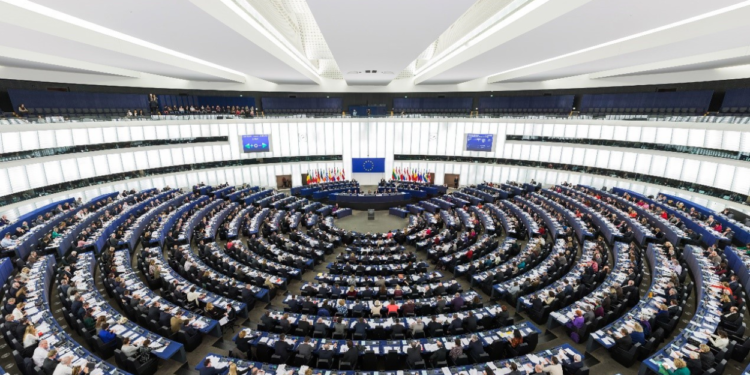Brussels ( Brussels Morning) – European Parliament Investigates Alleged Russian Payments to Members – EU Parliament scrutinizes alleged Russian payments to members amid accusations of spreading propaganda across Europe.
The EU Parliament’s press service confirmed to Media that it is “looking into allegations” that some of its members were disbursed by a Russian propaganda network thwarted earlier this week by Czech authorities. It comes after Belgian PM Alexander De Croo stated that “Russia had come to EU lawmakers” and paid them to “promote Russian propaganda” in Europe, as part of an operation uncovered in a Czech investigation.
The Parliament’s services were incapable of confirming how many MEPs could be under scrutiny but expressed it was working “in coordination with its institutional members” in response to the incendiary allegations.
MEP Maximilian Krah of the far-right Alternative for Germany (AfD), has expressed on X after being associated with Voice of Europe, the news organisation through which the Russian operation has been conducted, according to the Czech investigation.
Krah claimed he had given just two discussions to Voice of Europe over the past two years.
“There is no explicit allegation that I was paid for any of these,” Krah stated. “This indicates what to think of the current campaign: Nothing!” Speaking during a discussion on foreign interference in the Belgian parliament, De Croo endorsed that Belgian intelligence services had been made conscious of the allegations regarding MEPs by the Czech secret services. According to Czech media quoting officials from intelligence services, the allegations concern politicians from Germany, France, Poland, Belgium, the Netherlands and Hungary.
At the core of the operation smashed by the Czech authorities was the news company Voice of Europe, which has been penalized by the Czech Republic along with two people. One of the individuals sanctioned in the Czech Republic is pro-Kremlin Ukrainian politician Viktor Medvedchuk, who according to the Czech foreign ministry had utilised Voice of Europe to spread propaganda sought to undermine the “territorial integrity, sovereignty and independence” of Ukraine.
Czech Prime Minister Petr Fiala stated that the uncovered operation aimed to destabilise the whole of the EU, and revealed other European nations had instigated investigations as the effect of Czech efforts. Poland’s Internal Security Agency stated it was also bringing out searches in its capital Warsaw and the city of Tychy as a feature of a joint investigation “coordinated” with other EU countries.
Speaking from New York evening, EU Commission vice-president Věra Jourová assured that more accusations could shortly result from the Polish investigation, and blamed Putin for using “dodgy outlets” to pedal influence and “domestic parties” as his mouthpiece.
The platform at the heart of the investigations is Voice of Europe, a Dutch-listed business with its official headquarters in a small town in the province of North Brabant. The company declares on its social media channels to deliver “uncensored news from Europe and the world.” As recently as 11 days ago, it held a debate at the EU Parliament in Strasbourg during a plenary session, hosting sitting MEPs from Spain’s Vox, and the Netherlands’ far-right Forum for Democracy.
The firm’s website has been down since Wednesday evening, website libraries suggest. While its X, Facebook and YouTube accounts have been inoperative since March 27, its Telegram account is still functioning. But its content indicates that it had a full pass to the parliament and its members. Its social media tapes feature a string of MEPs, especially from the far-right Identity and Democracy group or non-attached members.
Renew Europe’s Hayer calls in her note to Metsola for Voice of Europe’s access to the EU Parliament premises to be discontinued and for the bloc to pursue the Czech Republic in slapping EU-wide sanctions on the firm. The other parliamentary gatherings and the parliament’s president have yet to remark on the allegations.




